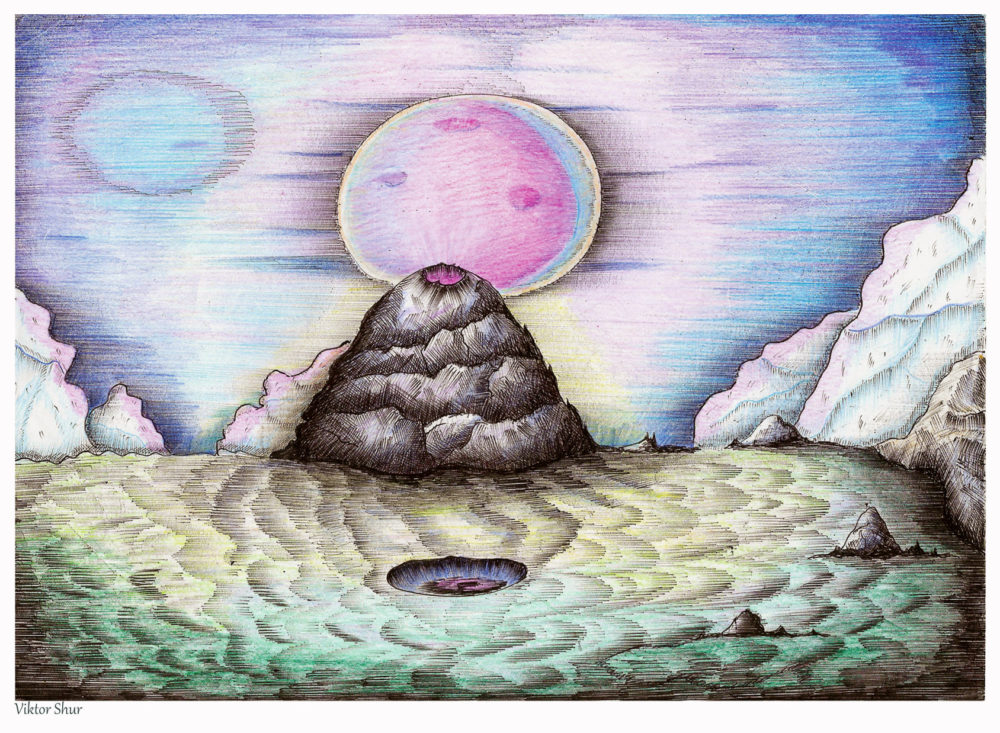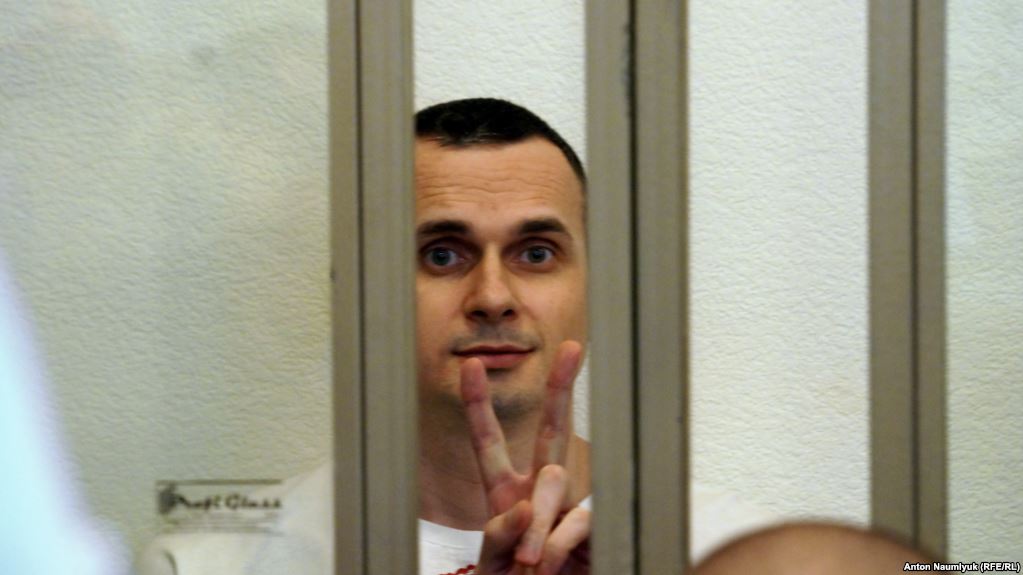On 23 November, Russian secret police (FSB) raided two cafes and a number of houses in Crimea’s capital, Simferopol, where they searched and detained several aged Crimean Tatars. 83-y.o. Vedzhie Kashka, a prominent figure in the history of the Crimean Tatar liberation struggle during the Soviet era, was also among the targets of that special operation. Unfortunately, the woman had a heart attack due to the actions of the “law enforcers” and died in the ambulance. Kremlin-controlled media have done their best to silence this tragic outcome.

The occupation court sent four men, Bekir Dehermendzhy, Asan Chapukh, Ruslan Trubach, and Kyazym Ametov, to remand jail until mid-January. With their capture, the number of Ukrainian citizens considered by human rights defenders as de facto political prisoners of the Russian regime reached at least 60. This number is prone to increase as several other cases may also have signs of politically motivated persecution.
The FSB claims that the four persons detained on 23 November 2017 are members of the Mejlis though, in fact, none of them are.
This deliberate distortion opens a new page of Russia’s propaganda campaign against the body after a short-lived perplexity caused by the pardoning of two Mejlis vice-chairs by President Putin. In October, Akhtem Chiygoz and Ilmi Umerov, who had been convicted by Russian courts for opposing the occupation of Crimea, suddenly regained freedom and were transferred to Türkiye. They were reportedly swapped for the two Russian citizens, who were arrested by Turkish authorities for spying and involvement in the killing of Chechnya’s anti-Russian insurgency fighter.
Read more: Liberated Crimean Tatar leaders: Don’t forget other Ukrainian hostages of the Kremlin
So far, Chiygoz has been the only person found “guilty” in the concocted “26 February” case instituted by Russian investigators against the Crimean Tatar activists. The defendants in this case took part in a rally in support of Ukraine’s territorial integrity on 26 February 2014, several weeks before the annexation of Crimea. The two activists arrested in this case, Mustafa Dehermendzy and Ali Asanov, who were unsuccessfully pressured to slander Chiygoz, are still waiting for their verdicts. They were kept in remand jail for almost two years until April 2017, when they were placed under house arrest. In 2016, the authoritative Memorial Human Rights Center recognized Chiygoz, Asanov, and Dehermedzhy as political prisoners.
Read more:
- Remember the Crimean Tatars jailed for resisting Russian occupation
- Russia’s show trial and sentence against Crimean Tatar leader Chiygoz: What you need to know
Mustafa Dehermendzhy’s father Bekir and their neighbor Kyazym Ametov were among the men deprived of freedom on 23 November 2017. A year ago, Bekir Dehermendzhy visited Brussels, where he met with EU politicians and told them about the misfortune of his son, who was then held behind bars.
“Most likely, they [Mustafa Dehermendzhy and Ali Asanov] are on trial for this position: we were against joining Russia… [Russian authorities seek to] frighten us and make us leave [Crimea],” he said during that trip.
“I don’t know what is on their mind. But I think it’s useless to frighten us. On the contrary, they unite us. Frankly speaking, we afraid nothing anymore. As long as I remember myself, we were trying to return to Crimea. And do you think if Russia came we are scared and are going to leave Crimea? No!
My son has the same view. I think Ali [Asanov] too. And all those who are now in prison will end to the end and prove they rightness and innocence.”
Now, after the father’s arrest, Mustafa asked the court to allow him exit from the apartment with the only aim: to accompany his mother when she went to pass a food parcel to her imprisoned husband. However, the court refused to satisfy this request.

When seizing Bekir Dehermendzhy, the police withdrew a book on the “26 February” case published in Kyiv. The book could serve as a pretext for accusing the arrested of possessing “extremist materials.” At the same time, Russian investigative authorities seem to have learned from their failure to discredit the Crimean Tatar national movement with openly political persecution for a pro-Ukrainian stance. Now the charges were constructed precisely to disgrace the Crimean Tatar activists, including the deceased Vedzhie Kashka, as despicable criminals.
Apart from the allegations concerning extremist literature, they have been imputed “extortion in a particularly large amoung” and holding everything Russian propaganda could imagine: machine guns, ammunition, and drugs. The Turkish citizen Yusuf Aitan, who owed money to Kashka and was reluctant to give it back, was likely used as a provocateur. Russian media portrayed him as a victim of the “Mejlis activists.”
As an activists of the Crimean Tatar national movement Nariman Dzhelial told Krym.Realii, the Turkish citizen had first befriended and then stolen a large sum of money from the family of Vedzhie Kashka. The activists who were detained attempted to persuade him to return the money. At some moment, either the Turkish citizen himself, or the "law enforcement" organs themselves used the situation to pressure the group of activists.
The recent searches and arrests, which followed the preliminary approbation of the new “Crimean” resolution in the UN, have much in common with the two-months-old sequence of events.
On 25 September, the office of the UN High Commissioner for Human Rights presented a report on the deteriorating human rights situation in Crimea. Eleven days later, the European Parliament adopted a resolution calling for the immediate release of the Ukrainian political prisoners held in Crimea and Russia and introduction of financial sanctions and travel bans against Russian officials responsible for gross human rights violations. In the wake of the appearance of these documents, two repressive waves befell Crimean Tatar Muslim believers. They resulted in the arrest of ten persons, some of whom were known as active supporters of their previously imprisoned compatriots. They were charged with membership of organizations groundlessly declared “extremist” (Tablighi Jamaat) or “terrorist” (Hizb ut-Tahrir) and outlawed in Russia.
As this pattern suggests, the international denunciation of the political terror in Crimea does matter as the occupation authorities cannot simply ignore it pretending that foreign outcry does not trouble them. What is worrying is that they tend to resort to even greater intimidation and brutal force, which last time ended fatally for the legendary veteran of the Crimean Tatar national movement.

The national governments and international organizations, including the UN and the European Union, thus bear a particular moral responsibility for the Crimean Tatars and other Ukrainian citizens who have or may become victims of Russia’s punitive retribution. Ukrainian human rights defenders in their statement on 24 November urged the world community to make Russia effectively investigate the death of Vedzhie Kashka and track the fates of the newly arrested, as well as to comprehensively support civic activists, families of political prisoners, and human rights lawyers in Crimea.





